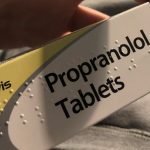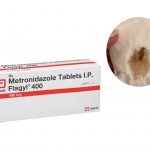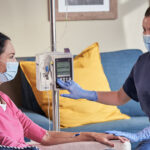Will I Ever Feel Normal Again After Chemo?

What is chemotherapy?
Chemotherapy is an aggressive form of chemical drug therapy meant to destroy rapidly growing cells in the body. It’s usually used to treat cancer, as cancer cells grow and divide faster than other cells. A doctor who specializes in cancer treatment is known as an oncologist. They’ll work with you to come up with your treatment plan.
Chemotherapy is often used in combination with other therapies, such as surgery, radiation, or hormone therapy. The use of combination therapy depends on:
- the stage and type of cancer you have
- your overall health
- previous cancer treatments you’ve had
- the location of the cancer cells
- your personal treatment preferences
It’s considered a systemic treatment, which means it affects the entire body. Chemotherapy has been proven to effectively attack cancer cells, but it can cause serious side effects that can severely impact your quality of life. You should weigh these side effects against the risk of going untreated when deciding if chemotherapy is right for you.
How is chemotherapy administered?
Chemotherapy can be given in a number of ways. Many chemotherapy medications are too harsh to go through the digestive tract, so they are given intravenously. IV, or intravenous chemotherapy, is delivered through a tube. One end of the tube is connected to a bag containing your medication and the other end is placed into a vein.
Some chemotherapy is available in pill or liquid form that can be taken by mouth, and others can be applied topically, as a cream or lotion. Chemotherapy may be given as an injection.
The name of the injection tells you where the chemotherapy will be administered:
- intrathecal or intraventricular into the fluid that surrounds the spinal cord and brain
- intramuscular into a muscle
- intra-arterial into an artery
- subcutaneous just under the skin
- intrapleural into the chest cavity
- intraperitoneal into the abdominal cavity
- intravesical into the bladder
- intratumoral into the tumor.
Goals of chemotherapy treatment
If your doctor has recommended chemotherapy as an option to treat your cancer, it’s important to understand the goals of treatment when making treatment decisions. According to the American Cancer Society, there are three main goals for chemotherapy (chemo) in cancer treatment they are:
- Cure
- Control
- Palliation
- Cure
If possible, chemo is used to cure cancer, meaning that the cancer is destroyed – it goes away and doesn’t come back.
Most doctors don’t use the word “cure” except as a possible or intended result of treatment. So, when giving treatment that might have a chance of curing a person’s cancer, the doctor may describe it as treatment with curative intent.
Although cure may be the goal in these situations, and is the hope of many who have cancer, it doesn’t always work out that way. It often takes many years to know if a person’s cancer is really cured.
Control
If a cure is not possible, the goal of cancer treatment may be to control the disease. In these cases, chemo is used to shrink tumors and/or stop the cancer from growing and spreading. This can help the person with cancer feel better and live longer.
In many cases, the cancer doesn’t completely go away, but is controlled and managed as a chronic disease, much like heart disease or diabetes. In other cases, cancer may go away for a while, but it’s likely to come back.
Palliation
Chemo can also be used to ease symptoms caused by the cancer. This is called palliation, palliative chemotherapy, or treatment with palliative intent.
When the cancer is at an advanced stage, probably cannot be controlled, and has spread, the goal of giving chemo may be to improve the quality of life or help the person feel better. For instance, chemo may be used to help shrink a tumor that’s causing pain or pressure so the patient feels better and has less pain.
It’s important to know that treatment used to reduce symptoms or improve comfort is called palliative care. For example, anti-nausea treatments or pain medicines are palliative, and can be used at all stages of treatment. It can be confusing when chemo is used as a palliative treatment, because it’s most often used to try to cure or control the cancer. But when it’s used with the goal of comfort, chemo becomes part of a palliative care plan.
What are the chemotherapy side effects?
We mentioned earlier that chemotherapy works by destroying cancer cells. Unfortunately, chemotherapy cannot tell the difference between a cancer cell and a healthy cell. Therefore, chemotherapy can cause side effects.
Among the most common are nausea, vomiting, hair loss, fatigue, and low blood counts. Some side effects may be temporary and merely annoying. Others, however, can be life threatening. For example, one of the most serious potential side effects of chemotherapy is low white blood cell count – a condition called neutropenia (new-tro-pee-neeuh) – which can put you at risk for severe infection or treatment interruptions. In most cases, you can successfully manage side effects by working with your healthcare team and by staying in close communication throughout your treatment cycles.
Is chemotherapy painful?
Most people find that chemotherapy is not painful. However, some people find that the side effects of chemotherapy drugs can be physically and emotionally challenging.
How will I feel during chemotherapy?
Chemotherapy affects people in different ways. How you feel depends on how healthy you are before treatment, your type of cancer, how advanced it is, the kind of chemotherapy you are getting, and the dose. Some people do not feel well right after chemotherapy. The most common side effect is fatigue (feeling exhausted and worn out).
Will I Ever Feel Normal Again After Chemo?
Yes, it is possible to feel normal again and live a longer life after chemotherapy. A course of chemotherapy treatment usually lasts 3–6 months, depending on the type of drug and stage of cancer. Doctors typically administer chemotherapy in cycles, with rest periods between 1–4 weeks. Cycles have rest periods in between to allow a person’s body to recover.
After you have completed your course of chemo, you may even get out more and see friends, go on holiday, get back into sport or hobbies, or go back to work. Your cancer experience may change your outlook on life. You may think about things differently than you did before. Some people decide on what’s important to them and make new priorities.
Can I work during chemotherapy?
Many people can work during chemotherapy, as long as they match their schedule to how they feel. Whether or not you can work may depend on what kind of work you do. If your job allows, you may want to see if you can work part-time or work from home on days you do not feel well. Talk with your employer about ways to adjust your work during chemotherapy.
Many employers are required by law to change your work schedule to meet your needs during cancer treatment.





